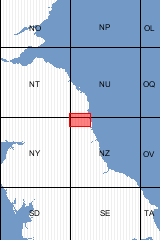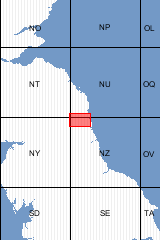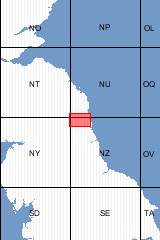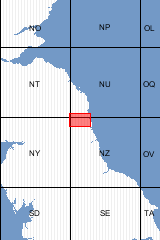

6 products found
Sort by

| Format | Folded Map | ISBN | 9780751835809 |
|---|---|---|---|
| Scale | 1:50 000 | Sheet(s) Covered | E009 |
| Version | B&Sup | Year Published | 2009 |

| Format | Flat Map | ISBN | 9780751835793 |
|---|---|---|---|
| Scale | 1:50 000 | Sheet(s) Covered | E009 |
| Version | B&Sup | Year Published | 2009 |

This is a 1966 reprint of 1934 map [Flat Map]
| Format | Flat Map | ISBN | 9780751836677 |
|---|---|---|---|
| Scale | 1:50 000 | Sheet(s) Covered | E009 |
| Version | S&D | Year Published | 1934 |

This is a 1966 reprint of 1934 map [Folded Map]
| Format | Folded Map | ISBN | 9780751836660 |
|---|---|---|---|
| Scale | 1:63 360 | Sheet(s) Covered | E009 |
| Version | S&D | Year Published | 1934 |

Sheet Explanations provide a brief description and interpretation of the geology of the relevant BGS 1:50 000 scale map sheet area. More detailed geological information for the same area is available via the Sheet Descriptions. Sheet Explanations are printed A5 booklets and are available either singly, or as a pack together with the relevant 1:50 000 scale map, where this map is available. Carboniferous rocks, deposited between about 350 and 310 million years ago, underlie the entire district. Most of the area is covered by a varying thickness of superficial deposits, and only in the northwest does the form of the ground bear any clear relation to the underlying bedrock structure. The Carboniferous succession, nearly 3000 m thick, was deposited in the Northumberland–Solway Basin. The Carboniferous sedimentary rocks represent the gradual infilling of the fault-controlled trough. Deposition in lagoonal coastal-flat environments in the early Carboniferous was followed by fluvial deposition and by the deposition of rhythmic units of limestone, mudstone, sandstone and coal on low-lying deltaic swamps with repeated shallow marine incursions. Extensional movements during early Permian times led to the emplacement of the Whin Dolerite Sill-swarm and of associated dykes of the Northern England Tholeiitic Dyke-swarm. A few basaltic dykes were intruded during the early Palaeogene. Superficial deposits of Quaternary age were deposited during the last, Devensian, glaciation. Postglacial and recent deposits include, alluvium, river terrace deposits and peat inland, with blown sand, tidal river, salt-marsh and marine deposits on the coast. [Booklet]
| Author | Lawrence, DJD et al | Collation | 210 x 145 mm; 36 pages |
|---|---|---|---|
| Format | Booklet | ISBN | 9780852726938 |
| Sheet(s) Covered | E009 | Year Published | 2011 |

This pack contains a Sheet Explanation for the district and the complementary 1:50 000 scale Bedrock Geology and Superficial Deposits map (folded). Sheet Explanations provide a brief description and interpretation of the geology of the relevant map sheet area. The A5 Sheet Explanation booklet and the map are supplied in a transparent wallet. While it is possible to buy the map and Sheet Explanation separately, buying them together as map pack saves you £3. Carboniferous rocks, deposited between about 350 and 310 million years ago, underlie the entire district. Most of the area is covered by a varying thickness of superficial deposits, and only in the northwest does the form of the ground bear any clear relation to the underlying bedrock structure. The Carboniferous succession, nearly 3000 m thick, was deposited in the Northumberland–Solway Basin. The Carboniferous sedimentary rocks represent the gradual infilling of the fault-controlled trough. Deposition in lagoonal coastal-flat environments in the early Carboniferous was followed by fluvial deposition and by the deposition of rhythmic units of limestone, mudstone, sandstone and coal on low-lying deltaic swamps with repeated shallow marine incursions. Extensional movements during early Permian times led to the emplacement of the Whin Dolerite Sill-swarm and of associated dykes of the Northern England Tholeiitic Dyke-swarm. A few basaltic dykes were intruded during the early Palaeogene. Superficial deposits of Quaternary age were deposited during the last, Devensian, glaciation. Postglacial and recent deposits include, alluvium, river terrace deposits and peat inland, with blown sand, tidal river, salt-marsh and marine deposits on the coast. [Booklet and Map Pack]
| Author | Lawrence, DJD | Format | Booklet and Map Pack |
|---|---|---|---|
| ISBN | 9786000008277 | Sheet(s) Covered | E009 |
| Year Published | 2011 | ||
6 products found
Sort by